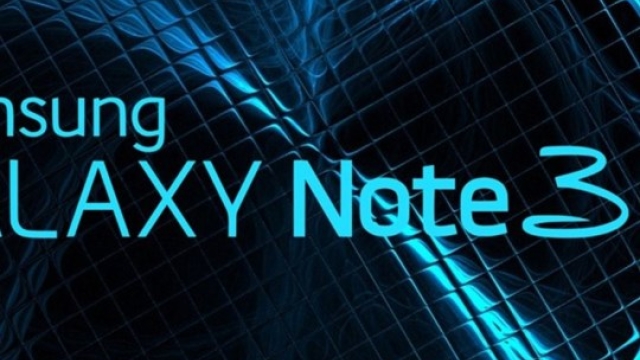
Human Resource Management Software (HRMS) has become an indispensable tool for businesses aiming to streamline their HR processes and transform their workplace management. With advancements in technology and the rise of artificial intelligence (AI), HRMS platforms like AI HRMS have completely revolutionized how small and medium-sized enterprises (SMEs) handle their human resources.
Gone are the days of manual, paper-based HR tasks. Human Resource Management Software offers a comprehensive and efficient solution that encompasses all aspects of HR administration, from recruitment and employee onboarding to performance evaluation and payroll processing. By automating these essential HR functions, businesses can save valuable time and resources, allowing their HR teams to focus on strategic initiatives and employee development.
AI HRMS takes this innovation a step further, leveraging the power of artificial intelligence to enhance HR processes. Through algorithms and machine learning, AI HRMS can analyze vast amounts of data to provide invaluable insights and predictions. This empowers businesses to make data-driven decisions, whether it’s optimizing workforce management, identifying talent gaps, or identifying patterns in employee behavior.
Moreover, AI HRMS offers a range of interactive features that improve employee engagement and HR service delivery. From self-service portals where employees can access and update their personal information to AI-driven chatbots that provide instant support and answer queries, these technologies create a seamless and user-friendly experience for both HR professionals and employees.
View Details
In summary, Human Resource Management Software, particularly AI HRMS platforms, represent a game-changer in how organizations manage their human resources. With the power of automation, data analysis, and artificial intelligence, businesses can increase efficiency, optimize decision-making, and elevate employee satisfaction. The future of HR lies in embracing these innovative technologies that revolutionize the way we work and optimize our most valuable resource – our people.
Key Features of AI HRMS
Easy Employee Management: AI HRMS simplifies the process of managing employees for small and medium-sized enterprises (SMEs). With its user-friendly interface, it allows HR managers to handle various aspects of employee management seamlessly. From maintaining employee records to tracking attendance and leaves, this software provides a centralized platform to streamline all HR-related tasks.
Advanced Recruitment Tools: One of the standout features of AI HRMS is its advanced recruitment tools. Through the integration of artificial intelligence, the software enhances the hiring process by automating various stages. It assists in creating job postings, filtering and shortlisting resumes, and even conducting initial screenings. By leveraging AI capabilities, HR managers can save valuable time and focus more on selecting the right candidates.
Analytics and Reporting: AI HRMS provides powerful analytics and reporting capabilities, allowing HR managers to gain valuable insights into their workforce. By analyzing data related to employee performance, attendance, and training, managers can identify trends and make informed decisions. Additionally, the software generates comprehensive reports that help organizations measure the effectiveness of their HR strategies and policies, enabling them to improve productivity and employee satisfaction.
In the next section, we will explore the benefits of integrating AI HRMS into HR processes, and how it can revolutionize the way SMEs manage their human resources. Stay tuned for more exciting insights!
Benefits for SMEs
Increased Efficiency: With the implementation of AI HRMS, small and medium-sized enterprises (SMEs) can experience a significant boost in their HR processes. This cutting-edge software automates repetitive tasks, such as employee onboarding, time tracking, and payroll management. By streamlining these processes, SMEs can save valuable time and resources, allowing their HR teams to focus on more strategic initiatives.
Improved Accuracy: Human Resource Management Software eliminates the risk of human error commonly associated with manual HR processes. Through advanced algorithms and machine learning capabilities, AI HRMS ensures accurate data collection, analysis, and reporting. This not only reduces the likelihood of costly mistakes but also provides SMEs with reliable insights to make informed decisions regarding their workforce.
Enhanced Employee Experience: One of the key advantages of implementing HRMS software is its ability to enhance the overall employee experience within SMEs. Through self-service portals, employees can easily access and update their personal information, request time off, and view their paystubs. This empowers employees, enabling them to take control of their HR-related tasks and reduces the administrative burden on HR personnel. Moreover, AI HRMS can also provide personalized training recommendations, career development opportunities, and performance feedback, leading to improved employee engagement and satisfaction.
By leveraging the power of Human Resource Management Software, SMEs can unlock a wide range of benefits, including increased efficiency, improved accuracy, and enhanced employee experience. With these advantages, SMEs can position themselves for growth and success in an increasingly competitive business landscape.
Future of HR Management Software
In the rapidly evolving world of technology, the future of Human Resource Management Software (HRMS) is filled with promising advancements. With the integration of Artificial Intelligence (AI) and machine learning capabilities, the potential for HRMS to transform the way businesses manage their human resources is truly revolutionary.
One key aspect of the future of HRMS is its ability to automate and streamline repetitive and time-consuming tasks. By leveraging AI algorithms, HRMS platforms can handle tasks such as employee onboarding and offboarding, benefits administration, and performance management with greater efficiency. This allows HR professionals to focus on more strategic initiatives, such as talent development and workforce planning.
Another exciting development is the integration of predictive analytics into HRMS platforms. By analyzing vast amounts of data, HRMS can provide invaluable insights into employee behavior, performance patterns, and engagement levels. These insights empower organizations to make data-driven decisions and take proactive measures to improve employee satisfaction and retention.
Furthermore, the future of HRMS lies in its enhanced collaboration and communication capabilities. Advanced HRMS platforms are equipped with intuitive interfaces, chatbots, and self-service portals that enable seamless communication between HR departments and employees. This promotes transparency, improves employee engagement, and creates a more connected and inclusive work environment.
In conclusion, the future of HR Management Software holds immense potential to revolutionize the way businesses manage their human resources. By embracing AI, automation, and predictive analytics, HR professionals can leverage HRMS platforms to streamline processes, gain valuable insights, and foster a more collaborative and employee-centric approach to managing the workforce.


